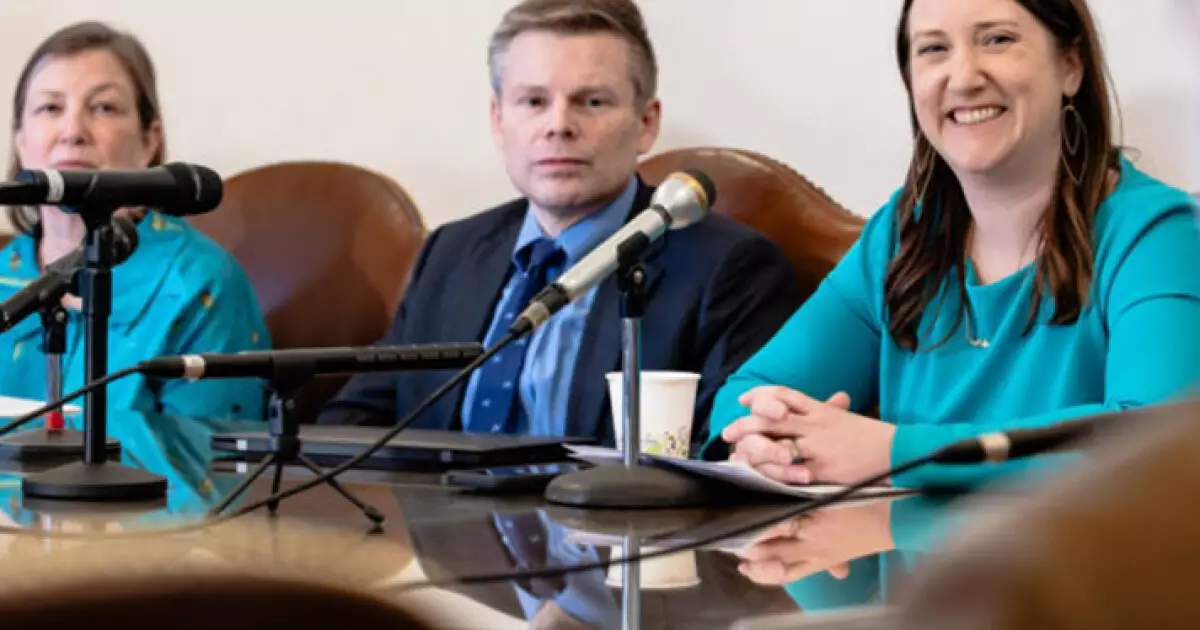The $77.9 Billion Reckoning: A Cautionary Tale for Washington State’s Fiscal Future

In a move that many are hailing as necessary but potentially disastrous, Washington state lawmakers finalized a budget of $77.9 billion, which promises both tax increases and program cuts aimed at addressing a staggering $16 billion deficit. This session encapsulates the complex dance of managing public funds, revealing an ugly truth: while budget deficits can catalyze significant reforms, they often come at the cost of essential services. The approved budget outlines an $8.7 billion tax hike and $5.9 billion in cuts, representing a philosophically troublesome pivot toward continual tax increases rather than more sustainable fiscal discipline.
As a center-right observer, it’s disheartening to see how easily legislators resort to augmenting taxes rather than making tougher decisions about spending priorities. A tax increase, especially when relating to fundamental daily needs, does little more than shift burdens while creating deeper fissures in the social contract. History teaches us that tax hikes, particularly of this magnitude, don’t just affect the wealthy; they seep into the lives of average citizens who struggle to make ends meet—people who are already drowning in a rising tide of living costs.
Legislators at Odds: A Call for Genuine Fiscal Responsibility
Washington’s budget has traded taxpayer’s faith for short-term solutions, setting a precedent for future leaders that emphasizes the convenience of tax increases over genuine fiscal responsibility. It’s difficult to reconcile how lawmakers could proudly announce increased spending on issues like education and environmental goals while simultaneously inflicting painful cuts to vital programs, including children’s support services. If preserving the rainy-day fund is laudable, why is it paired with the apology of harmed citizens?
If lawmakers were more transparent about their financial priorities and less obsessed with creating attractive headlines, we might have witnessed a more prudent approach to tackling this deficit. However, the focus seemed to be aimed more at appeasing party loyalties than addressing the glaring needs of constituents who will ultimately pay for these taxing decisions. Even within their party, there appears to be a contradiction: funding for things like housing and homelessness is laudable, but how can this be prioritized while simultaneously cutting programs that directly benefit the most vulnerable?
The Illusion of Consensus: A Party Divided
The Democratic majority, while seemingly united in purpose, cannot quite mask the friction among its ranks regarding this budget. State Senate Majority Leader Jamie Pedersen’s insistence that discussions with Governor Bob Ferguson went well could insinuate a fabricated harmony. If fiscal prudence is the end goal, such perspectives shouldn’t rely on rosy press conferences. The disagreement over tax policy illustrates a serious ideological split, particularly regarding Ferguson’s earlier objections to a wealth tax, which suggests a leadership more concerned with immediate governance than with resolving the underlying economic malaise.
Governor Ferguson’s reluctance to fully endorse the budget despite recognizing its good aspects speaks volumes about the internal dissent that permeates his party. A governor’s hesitance in such matters showcases a genuine struggle between the old-school political machinery and the growing realization that unsustainable taxation is a recipe for eventual economic strife. It’s a troubling indication of the party’s willingness to sacrifice their principles for the momentary pleasures of budget passage.
A Cautionary Future: The Danger of Short-Term Solutions
What remains troubling is that Washington’s approach to budgetary decay reflects a broader trend seen across the nation: a reluctance to confront fiscal realities directly leads states like Washington into deeper levels of economic dependency. Cutting funding to drug rehabilitation and child support programs while claiming a victory in educational spending feels morally contradictory and economically reckless. These are the very cornerstones of an effective society, and neglecting them serves to highlight an uncertain future.
With a looming debt load exacerbated by tactical short-term solutions, this budget risks the long-term efficacy of state infrastructure and social services. Future generations stand to inherit not just financial debt, but a systemic culture of dependency that could stifle economic growth and self-sufficiency. In an era where fiscal conservatism spurs debates across party lines, legislators must acknowledge a truth we cannot afford to ignore: a culture of higher taxes and chronic spending cuts leads down a treacherous path of long-term instability.
Washington state’s budget stands as a dire warning against complacency and a case study in how political maneuvering can become detrimental to fiscal health. Spurred by the expediency of policy, the latest budget may have averted immediate crisis, but at what cost? Political posturing thrives in the shadows, disguising impending financial reckoning, while constituents continue to shoulder the burden of these critical decisions.





